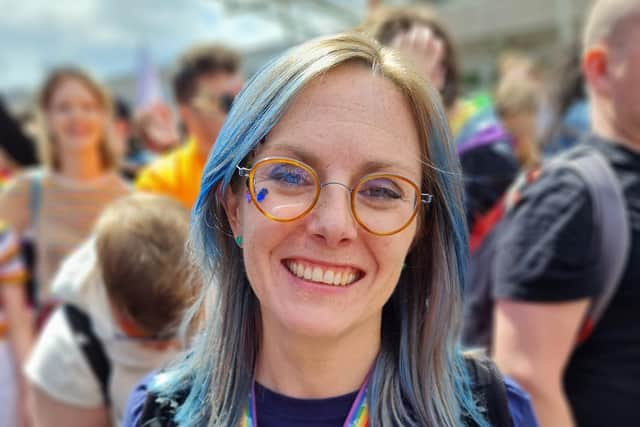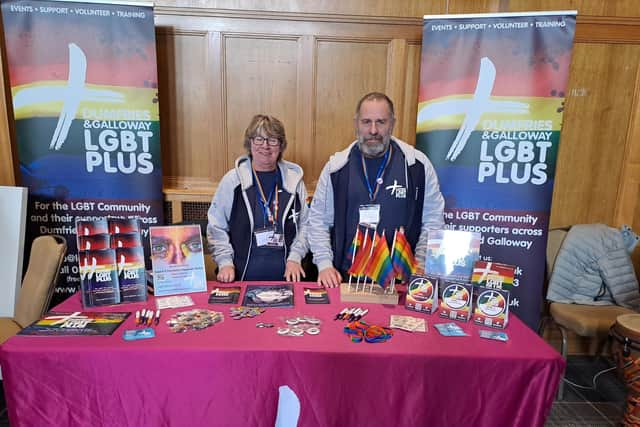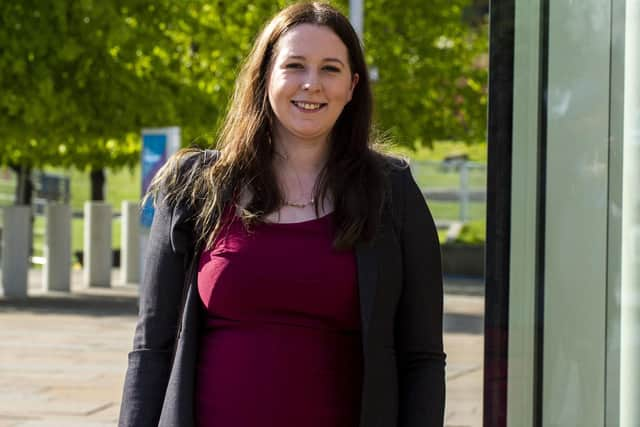Scotland LGBTQ: 'Unacceptable' rural challenges for young people amid 'silent world' warning
Life in rural Scotland is a worryingly isolating experience for members of the LGBTQ+ community, research has shown.
LGBT Youth Scotland published a study last week that found more than six in ten (61 per cent) of its 1,300 participants aged between 13 and 25 found living in rural areas to be unwelcoming.
Advertisement
Hide AdAdvertisement
Hide AdHomophobia, biphobia and transphobia, and the challenge of finding anonymity in areas where “everyone knows everyone’s business”, were cited as some of the main reasons.


Participants said these issues were more prevalent in rural than urban areas, and were exacerbated by a lack of public transport and specialist services within a reasonable distance.
Equalities minister Emma Roddick, speaking at the report’s launch, said LGBTQ+ young people in rural areas facing unique challenges simply because of where they live “is unacceptable”.
Since the release of the study, campaigners have also wanted to shed a light on the issues faced by the older demographic of the LGBTQ+ community in rural Scotland.
Iain Campbell, who works for the charity Dumfries and Galloway LGBTPlus, which focuses on adults, said some people he supports have unique challenges being from an older generation.


"Some of the adults we go to lived through and are still living with the prejudice that stems from when being gay was illegal,” he said. "They have lived through times where they could have been imprisoned or lost their job for being gay.”
Homosexuality among men was illegal in Scotland until 1980. Same-sex contact between women had never been targeted in law and was not illegal.
Mr Campbell said the team also worked with people who were impacted by section 28 – a legislation that prohibited the "promotion of homosexuality" by local authorities – and during the LGBT ban in the military.
Advertisement
Hide AdAdvertisement
Hide Ad"Some are out and proud, but some are very much not because of this fear,” he said. "We have people who knew they were gay when they were doing national service and were expected to get married, have kids, have a job and then retire.


"We found that some, after their spouses have died, they’ve come out and been their real self and then society rejects them anyway. The mental health they must have been going through; not recognising that face, that body, for so long.
"We visit a veteran who is 70 who recently came out as trans.”
The charity said the plethora of available support online was not always as easily accessible to older people than it was for their younger peers.
The LGBT Youth Scotland report said physical interactions were essential to reduce isolation in rural communities, but that digital tools had been, and continue to be, a lifeline for many isolated LGBTQ+ young people.


For some adults Mr Campbell visits in rural Dumfries and Galloway, however, internet access isn’t always an option.
"It’s very much a silent world,” he said. “Some of them don’t have a smartphone or internet, they might just have a pay-as-you-go top-up phone.
"But even if they do have internet access, they might not have the awareness of what online support there is. We are in a digital era and a lot of the older demographic are left behind.”
Advertisement
Hide AdAdvertisement
Hide AdMr Campbell said another concern was finding appropriate care for isolated, elderly members of the LGBTQ+ community.
"We do training with the NHS, but that is just the tip of the iceberg,” he said. "There are so many care companies.
"How can we guarantee that some of the carers going to some of these isolated residents are LGBT aware? There needs to be more investment in LGBT friendly care packages so that people can feel safe.”
Both LGBTPlus and LGBT Youth Scotland have called on the Scottish Government, local authorities and funders to find ways to sustainably invest in LGBTQ+ services in rural areas.
Dr Mhairi Crawford, chief executive of LGBT Youth Scotland, said: “There is still much work to be done. We must ensure proper funding for inclusive youth services and workers across rural areas. Without this investment, we will not be able to support LGBTQ+ youth and their struggle for acceptance will remain an uphill battle. This is a key time, and we must ensure we are taking it with both hands to make sure we are doing all we can to foster inclusivity and acceptance.
“It is vital that the Scottish Government, local authorities, and funders find ways to sustainably invest in youth work and services, to create inclusive spaces for LGBTQ+ young people in rural areas.”
The Scottish Government said ministers will continue to fund LGBT Youth Scotland research to improve the lives of young members of the LGBTQ+ community.
Ms Roddick pointed to ongoing funding for the LGBT Health and Wellbeing, which includes the LGBT Age project, a programme of online and face-to-face social opportunities and self-advocacy work with older LGBTQ+ people.
Advertisement
Hide AdAdvertisement
Hide AdShe said: “LGBT Health and Wellbeing recently launched its Age Action Report on housing and social care for older LGBTQI+ people. We are also publishing our Non-Binary Equality Action Plan, which will improve non-binary equality and wellbeing in Scotland including for trans and non-binary older people.”
NHS Scotland’s health needs assessment of lesbian, gay, bisexual, transgender and nonbinary people report published last year found LGBTQ+ people face health inequalities “on every measure of wellbeing – social, physical, mental and emotional, financial”.
The report said while this is true for all LGBTQ+ groups, non-binary and trans people consistently demonstrate the worst health and wellbeing indicators and bisexual women also have particularly poor indicators for mental wellbeing.
According to the report, 14 per cent of the 2,400 LGBTQ+ respondents who took part in the study live in rural areas. Some 58 per cent said they lived in a large town or city, while 28 per cent lived in a suburban area or small town.
Comments
Want to join the conversation? Please or to comment on this article.
